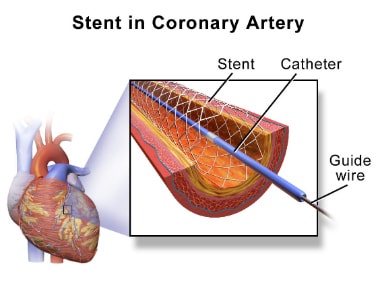India has told the United States it won’t abstain from capping prices for more medical devices, regardless of pressure to rethink its stance after price controls on heart stents and knee implants spoilt the market for some US firms, sources familiar with the matter said. India’s drug pricing authority is also pushing to bring three more devices used while treating heart ailments under the ambit of price controls as they are sometimes more expensive than the stent itself, showed a government letter reviewed by Reuters. [caption id=“attachment_4452937” align=“alignleft” width=“380”] Boxes of Abbott’s heart stents are pictured inside a store at a hospital in New Delhi, on 27 April, 2018. Reuters.[/caption] India’s $5 billion medical device market has provided rich fishing grounds for US-based companies like Abbott Laboratories and Boston Scientific Corp, but the prospect of price caps being extended to more products sent shivers through their ranks. In September, the United States Trade Representative (USTR) wrote to Prime Minister Narendra Modi’s office and Trade Minister Suresh Prabhu urging them “to not expand price controls to additional medical devices”, according to a copy of the letter seen by Reuters. During a meeting last month, Indian officials told USTR Assistant Trade Representative Mark Linscott that India had decided against making any such commitment, a trade ministry official told Reuters on Tuesday. “This position will not change, it is within the right of the government of India (to impose price caps),” said the official, who declined to be named. Linscott “expressed concerns” with India’s stance during the meeting, another Indian trade official said. A USTR spokesperson declined to comment for this article, and Modi’s office did not respond to Reuters’ queries. Price controls form part of Modi’s broader agenda to improve India’s dilapidated public health system and boost affordability of treatment. Equating high trade margins on some medical devices with “illegal profiteering”, the government last year capped prices of some high-end heart stents - small wire-mesh structures used to treat blocked arteries - at around $450, compared to $3,000 charged earlier. During a visit to Britain last month, Modi himself extolled the price caps’ success in making treatment much more affordable for Indians. And India’s National Pharmaceutical Pricing Authority (NPPA) has been pushing for more price controls. The regulator wrote to the health ministry on Feb. 26, asking for three other devices used to treat heart ailments - cardiac balloons, catheters and guide-wire - to be added to a list of products eligible for price controls. [caption id=“attachment_3409000” align=“alignleft” width=“380”]
 Representational image. Courtesy: Wikipedia.[/caption] In the letter, the NPPA described the prices charged for these products as “exorbitant”, and said companies involved in bringing them to the market were enjoying high trade margins. “Because of these exorbitant prices of catheter and balloon, which are many times higher than the stent price itself, the objective of price capping of stents gets diluted,” the NPPA said in its letter. The NPPA also said intraocular lenses, which are used during eye surgery, should be brought under the list. A senior health ministry official told Reuters that the NPPA’s requests merited “consideration”. Medical device manufacturers argue that India’s price control mechanism hurts innovation, profits and future investment, and the USTR described India’s policy as “very troubling”. Indian trade officials anticipate coming under more pressure from the United States. The USTR is currently reviewing India’s eligibility under its Generalized System of Preferences (GSP), a program that allows duty-free imports of certain goods. India was the largest GSP beneficiary at $5.6 billion, the USTR said in April. Bilateral trade rose to $115 billion in 2016, but the US wants to reduce its $31 billion deficit with India, and is pressing New Delhi to ease trade barriers.
Representational image. Courtesy: Wikipedia.[/caption] In the letter, the NPPA described the prices charged for these products as “exorbitant”, and said companies involved in bringing them to the market were enjoying high trade margins. “Because of these exorbitant prices of catheter and balloon, which are many times higher than the stent price itself, the objective of price capping of stents gets diluted,” the NPPA said in its letter. The NPPA also said intraocular lenses, which are used during eye surgery, should be brought under the list. A senior health ministry official told Reuters that the NPPA’s requests merited “consideration”. Medical device manufacturers argue that India’s price control mechanism hurts innovation, profits and future investment, and the USTR described India’s policy as “very troubling”. Indian trade officials anticipate coming under more pressure from the United States. The USTR is currently reviewing India’s eligibility under its Generalized System of Preferences (GSP), a program that allows duty-free imports of certain goods. India was the largest GSP beneficiary at $5.6 billion, the USTR said in April. Bilateral trade rose to $115 billion in 2016, but the US wants to reduce its $31 billion deficit with India, and is pressing New Delhi to ease trade barriers.
Price controls form part of PM Modi’s agenda to improve India’s dilapidated public health system and boost affordability of treatment.
Advertisement
End of Article


)

)
)
)
)
)
)
)
)



